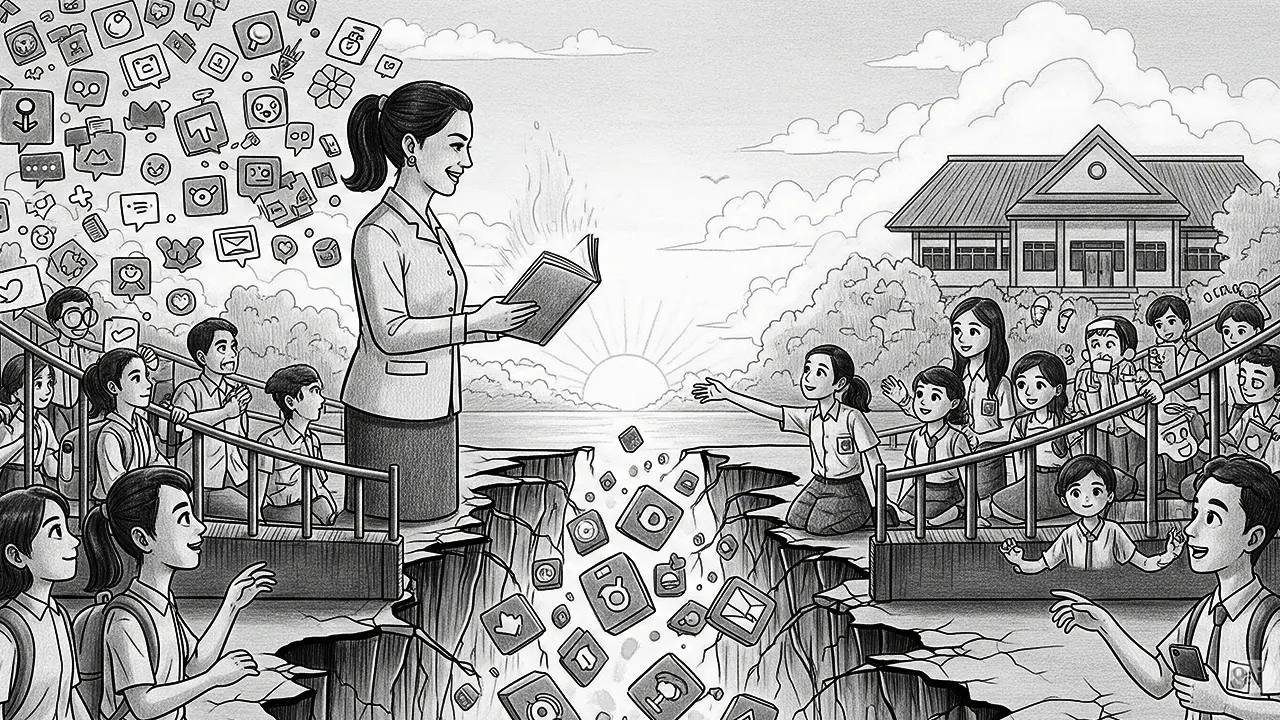Children born after 2010 are part of what is now widely recognized as Generation Alpha a group raised in an era where technology is deeply embedded in everyday life. Unlike previous generations, these children interact with the world in novel ways. They are not just tech-savvy; they are digital natives. As a result, they expect faster access to information, instant feedback, and a more engaging learning experience.
This presents a unique challenge for teachers. How do we modify traditional teaching approaches to remain relevant? How do we incorporate technology without compromising essential social and emotional development? And more importantly, how can we create a learning environment that not only nurtures their academic growth but also prepares them for the future?
This opinion piece aims to explore the opportunities and challenges of teaching Generation Alpha. It also offers solutions and insights for educators, parents, and communities to support the holistic development of these young learners.
Opportunities and Challenges in Educating Generation Alpha
Educating Generation Alpha is no ordinary task. They are growing up in a hyperconnected world, where information is abundant and technology is seamlessly integrated into their routines. This dynamic environment has transformed how they think, communicate, and learn. Consequently, the role of educators has become more complex than ever before.
One of the most significant challenges is addressing the short attention spans and high expectations of today’s students. Traditional lecture-based instruction often fails to captivate their interest. These children are used to multimedia-rich environments that provide instant gratification. Therefore, teaching methods must evolve becoming more interactive, student-centered, and visually engaging.
Technology is undeniably a powerful educational tool. It offers endless resources and fosters self-paced learning. However, over-reliance on digital devices may impede face-to-face communication, reduce critical thinking, and hinder the development of empathy and emotional intelligence. Balance is key.
Another pressing issue is the quality of information available to children online. The internet is a double-edged sword; while it grants access to knowledge, it also exposes students to misinformation and potentially harmful content. This underscores the urgent need to teach digital literacy as a core skill.
Beyond the digital sphere, Generation Alpha also faces a range of mental health challenges. The constant presence of social media can lead to unrealistic self-expectations, cyberbullying, and increased anxiety. At the same time, educational inequalities remain a critical concern. Not all children have the same level of access to quality education, especially in rural or underprivileged areas.
Lastly, the curriculum itself must be reevaluated. Outdated methods or topics that lack relevance to contemporary issues like climate change or global citizenship fail to prepare students for the realities of the 21st century.
Addressing the Social and Emotional Needs of Generation Alpha
Educators must recognize that learning is not solely cognitive it is also emotional and social. The lack of meaningful social interaction due to technology, especially after the COVID-19 pandemic, has left many children less confident in expressing themselves and building relationships.
To nurture well-rounded individuals, schools must:
- Create safe spaces for emotional expression.
- Encourage cooperative learning through team-based projects.
- Incorporate mindfulness and self-awareness practices.
- Provide access to trained school counselors who can address emotional and behavioral issues.
By doing so, we not only support academic achievement but also promote mental resilience and emotional intelligence, which are just as crucial in today’s world.
Key Solutions for Teaching Generation Alpha
To effectively educate Generation Alpha, we must adopt forward-thinking strategies that meet their unique needs. Below are six critical approaches:
- Enhancing Social Interaction
Foster collaboration through peer learning, role-playing, and group discussions. These activities improve both communication skills and empathy, while reducing dependence on screens. - Embedding Digital Literacy into Curriculum
Teach students how to critically evaluate information, distinguish credible sources, and behave ethically online. Digital literacy is essential for navigating the information age responsibly. - Supporting Mental Health in Schools
Schools should implement mental health programs and include topics such as emotional regulation, self-care, and healthy online habits in the curriculum. Teachers should be trained to identify signs of distress and refer students to professionals when necessary. - Bridging the Educational Gap
Governments and school systems must ensure equitable access to educational technology. This includes providing internet connectivity, digital devices, and supporting infrastructure to disadvantaged communities. - Innovating Teaching Practices
Use gamified learning, augmented reality, and interactive platforms to make lessons more engaging. Encourage project-based learning that emphasizes creativity, problem-solving, and critical thinking. - Fostering Strong Partnerships
Educate and involve parents by organizing workshops on digital parenting, home-based learning support, and emotional development. Build a triangle of collaboration between schools, parents, and communities.
Conclusion
Educating Generation Alpha is both a challenge and an opportunity. While the digital age brings many benefits, it also requires us to rethink traditional teaching models. As educators, we must adopt flexible, creative, and empathetic approaches to support these children not just academically, but holistically.
Technology, when used wisely, can enrich the learning experience. But it must be balanced with human interaction, emotional support, and moral education. Mental health and equal access must be prioritized. And, most importantly, teaching must evolve in a way that reflects the world children are growing into not the one we grew up in.
Generation Alpha is the future. By working together parents, teachers, and society we can provide them with the tools, values, and confidence they need to thrive. The time to innovate is now. Let us rise to the occasion and shape a generation that is not only intelligent but also kind, curious, and resilient.
Supervisor: Dr. Muhammad Iman Sastra Wihajat








